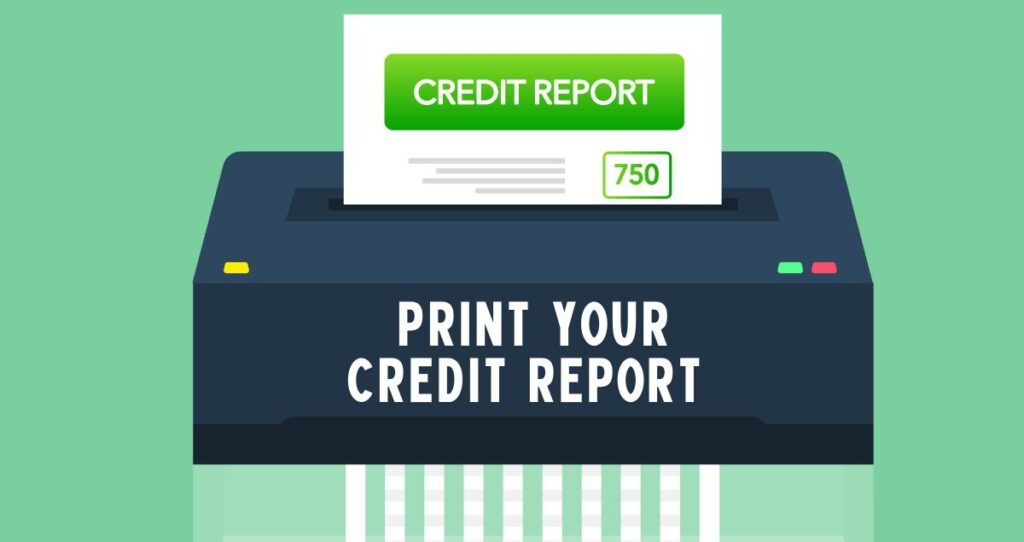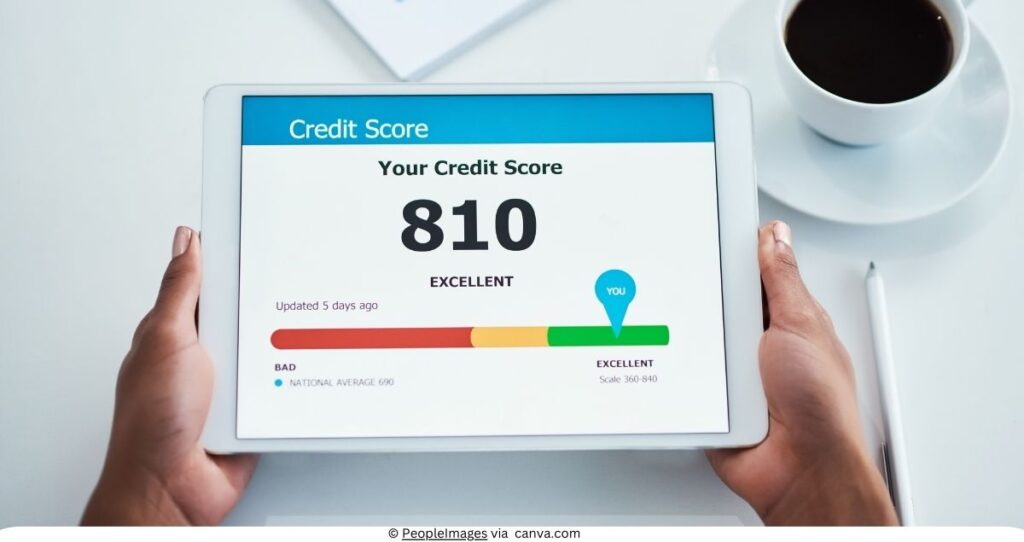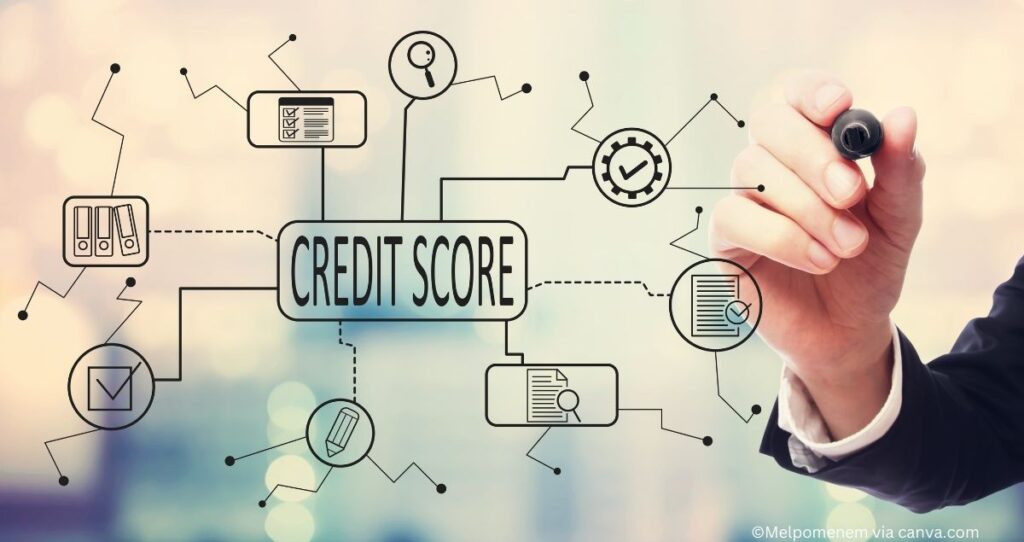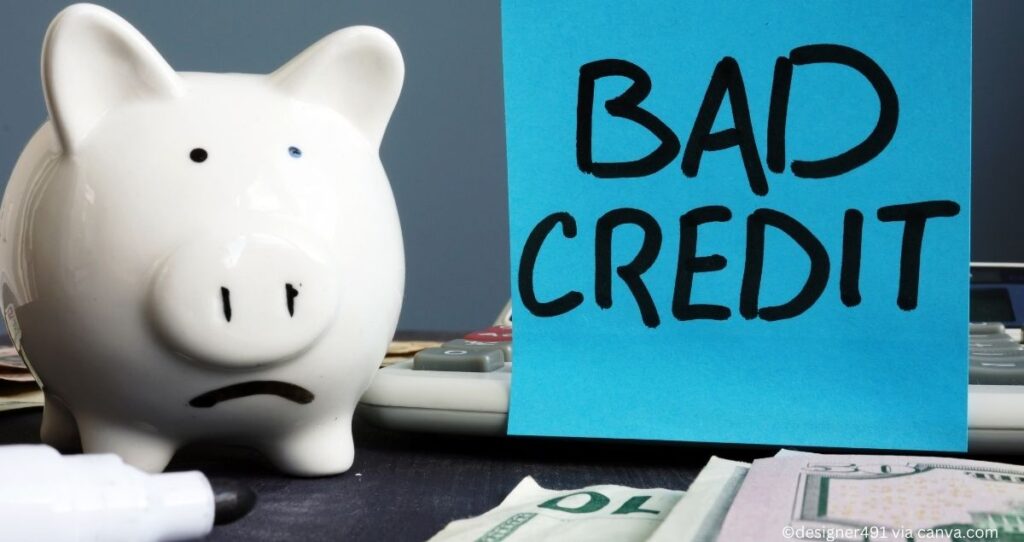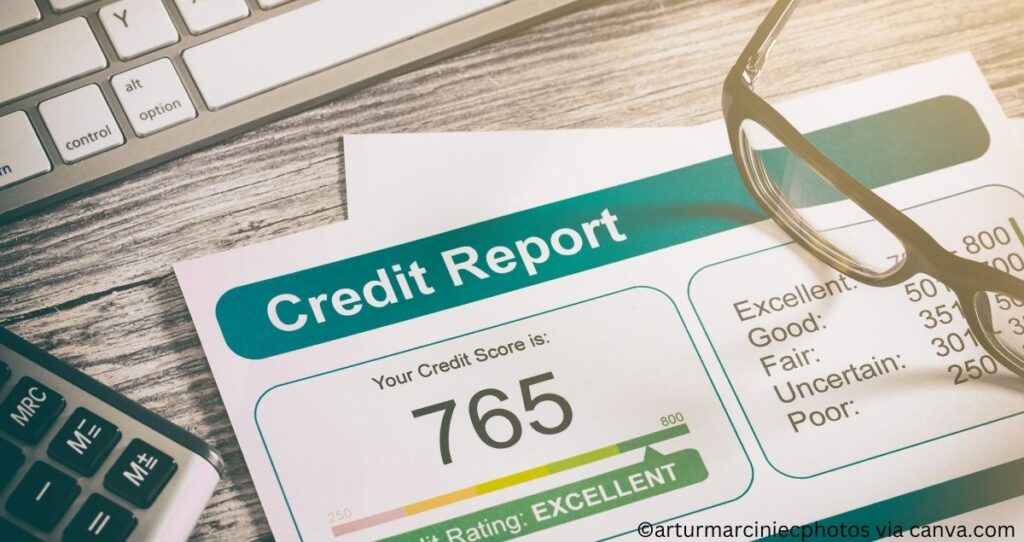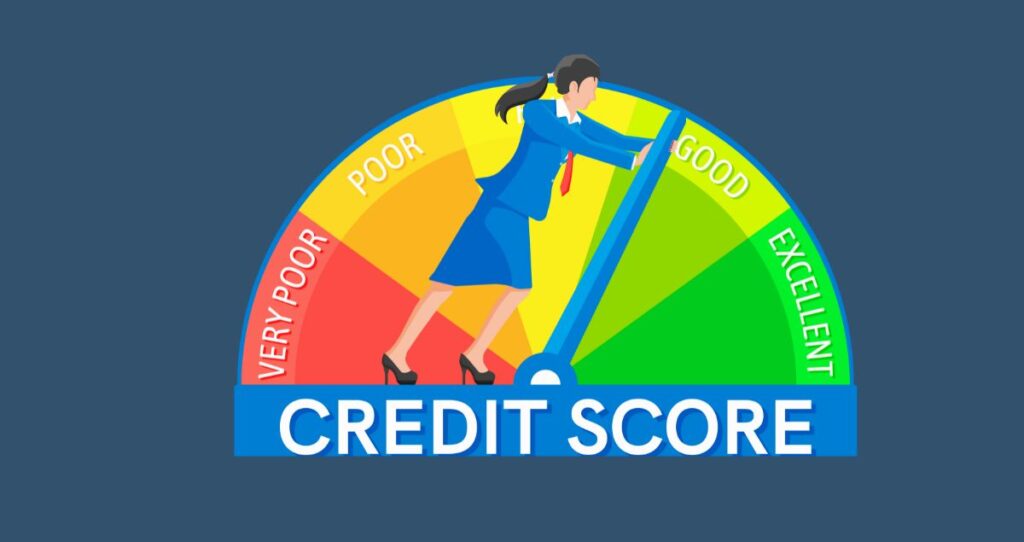If you are buying a car, you probably know that having a good credit score is critical to getting approved for the loan and locking in a lower interest rate. What is a good credit score to buy a car? A 661 and higher is considered a good credit score for buying a car but consumers with 700+ credit scores get the lowest auto rates.
Auto loan providers rely on your credit score when accessing your loan application. For this reason, it is a good idea to check your credit score before applying for a car loan. If you have a bad credit score, rebuild it before submitting a loan application. Most lenders use FICO scores during the loan application process. But, there is a handful of car loan providers who use VantageScores. No matter the score you check, it should give you a general idea of where you stand compared to the credit score needed to buy a car.
For example, if your score is 550, you should increase this score to at least 661 or higher to qualify for a car loan. While some lenders might approve you for a loan with such a low credit score, you will pay a high interest rate. Additionally, you will not have a wiggle room to negotiate your loan terms.
Here is everything you need to know about the credit score you need to have for buying a car.
What is a good credit score to buy a car?
Having a good credit score when buying a car qualifies you for the loan faster and you get a lower interest rate.
The credit score models car loan companies use and the score needed for each loan vary from one lender to another. Most lenders use your FICO score when approving you for the loan while a handful of lenders use your VantageScore.
A good FICO score is between 670 and 739, according to Equifax while a good VantageScore is between 661 and 780, according to Chase. For the FICO scoring model, a good credit score to buy a car should be 670 and higher. But, if your lender uses a VantageScore, you need at least a 661 credit score to qualify for an auto loan.
These credit scores are usually the minimum scores most car loan issuers require to approve you for the loan. As a consumer, aiming for the minimum credit score requirements is not the best way to borrow money. What you can do instead is to aim for a credit score in the 700s or higher. Typically, having a 740+ credit score increases your loan approval rate and you qualify for a much lower auto loan rate compared to consumers in the 600s score range.
While having a good credit score when buying a car is essential, credit score is not the only factor car loan companies look at when approving you for a loan application. Other factors such as income, credit history, employment stability, and debt-to-income ratio are also used when assessing your creditworthiness.
Average Car loan APR based on credit score
Consumers are usually grouped into different categories based on their credit score. These categories include Super-prime, Prime, Nonprime, Subprime, and Deep subprime with Super-prime borrowers carrying the lowest risk and Deep-subprime being the riskiest borrowers.
Most lenders will reject your car loan application if you are a Deep subprime, Subprime, or Nonprime borrower. That is you might not qualify for a car loan if your credit score is under 660. Borrowers in these three bottom categories carry the most risk due to having a higher chance of defaulting on their loans. Some of these borrowers have track records of late payments, foreclosures, too much debt, and other negative items on their credit reports which makes them risky borrowers.
This does not mean you cannot qualify for a car loan if you have a bad credit score. You could find a car loan provider who is willing to extend your credit but at a higher cost. As you can see in the table below, people with a credit score of 660, for example, pay an average APR of 14.12% for used cars and 9.60% for new cars. The average APR on car loans almost doubles for a credit score under 500 where you get charged 18.89% APR for used cars and 14.78% for new cars.
What is the average interest rate on a car loan?
Car loan interest rates differ by credit score and whether you are buying a new or used car. Typically, used cars come with higher APR compared to new cars as they are more likely to break down and wear faster. Your credit score also affects your interest rate when buying a car. The higher your credit score gets, the lower your APR will be, and vice-versa.
According to Credit and NertWallet, the following are groups of borrowers and the interest they pay based on their credit scores. These credit rates change over time based on your lender and market rates.
| Category | Credit Score | Average ARP for used cars | Average APR for new cars |
| Super-prime | 781-850 | 7.66% | 5.64% |
| Prime | 661-780 | 9.73% | 7.01% |
| Nonprime | 601-660 | 14.12% | 9.60% |
| Subprime | 501-600 | 11.05% | 12.28% |
| Deep subprime | 300-500 | 18.89% | 14.78% |
While having a 661 credit score can get you a car loan, having a credit score of 700 and higher qualifies you for a much lower APR. For example, if you have a 781 and above credit score, you will only pay 7.66% APR on average for used cars and an average APR of 5.64% for a used car. This interest rate is like a discount compared to someone with a credit score of 660, for example, where the average APR becomes 14.12% for used cars and 9.60% for a new car.
Where to get the best car loan interest rate?
While having a good credit score to buy a car will help you qualify for a lower rate, doing your homework will also help you lower the interest rate even further. When shopping for an auto loan, qualifying for a lower interest rate will save you money on the overall cost of the car and make your monthly payments affordable. If you want to get the best car loan rate, shop around for cheap auto rates from multiple lenders.
Here is a list of the best places to find cheap car loans
- Get a car loan from a dealership. Dealerships are great places to look when shopping for the best car loan. Not only they can sell you a car, and process your documents in one visit including car title and registration, but you might also get financing through the same dealership. Even if your dealership does not offer auto loans, they might connect you with a bank and make the process easier and faster.
- Borrow from Credit unions. Another place to get the best auto loans is to reach out to your local credit unions. Keep in mind that you might be required to become a member of the credit union which simply means creating an account and meeting a minimum deposit requirement.
- Get a loan from your bank. If you have a bank account, reaching out to your bank will be a great way to get the lowest auto loan rate. The relationships and history with the bank can also help you get the lowest rate possible or easily qualify for the money even if you don’t have a good credit score to buy a car.
- Find an online lender. If you can’t secure a lower interest rate on your loan, check out online lending companies. These loan companies usually offer competitive rates due to not having the costly physical infrastructures conventional banks and credit unions have.
How to lower your car loan interest rate?
Qualifying for a car loan and paying a lower interest rate on your loan are two different things. You must focus on lowering your interest rate as much as you focus on getting approved for the loan. Paying a lower car loan interest rate will make your monthly payments affordable and save you money on the car.
Here are different ways to lower your car loan interest rate.
Improve your credit score
Your credit score is one of the most important factors lenders look at in your loan application process. Not only is your credit score used to approve you for the loan, but it is also the main factor that determines the interest rate you pay on the loan. That is why meeting the minimum credit score to buy a car is not good enough. You need to aim for a high credit score to qualify for a lower interest rate.
A higher credit score shows that you are responsible and can be trusted with the money. That is why lenders compete to lend you money and give you competitive rates when you have a higher score.
On the other hand, having a bad credit score shows you are irresponsible and will more likely default on your loan which leads to rejecting your loan application or charging you a higher interest rate.
Here are tips to boost your credit score
- Pay your bills on time. Payment history accounts for 35% of your FICO score. So, paying your bills on time shows a good track of on-time payments which improves your score.
- Lower your credit utilization. Credit utilization accounts for 30% of your credit score and it refers to the amount you owe on revolving credit accounts such as credit cards compared to your total credit limit. If you need a boost in your credit score, keep your credit utilization under 7% or 0% if you can afford to pay your bills in full each month.
- Avoid getting too many credit accounts. When you apply for a loan or credit credit card, a hard inquiry appears on your credit report. Each inquiry can drop your score by 5-6 points. While one inquiry is OK, too many hard queries can significantly lower your score.
- Clean up your credit report. To calculate your credit score, credit reporting agencies such as Equifax, TransUnion, Experian, and FICO use information from your credit report. Incorrect, error, fraudulent, or outdated information in your credit reports will lower your credit score. To improve your credit score and get a lower car loan interest rate, clean up your credit report by disputing removable items to major credit bureaus.
- Become an authorized user of a credit card. Another strategy to increase your credit score is to become an authorized user of a credit card account with a solid credit history.
Buy a different car
Usually, used car loan interest rates are higher than new cars even if you have a good credit score to buy a car. If you are being offered a higher car loan interest rate on a used car, switch to a new car if you can afford to do so. This way you will directly lower your car loan rate by a few points which will save you money on the car and lower your monthly payments.
Increase your down payment
Did you know that many lenders will charge you a higher interest rate if you don’t have an adequate down payment? This is because the more money you borrow, the higher the risk for the lender if you default on your loan. The fact that you are trying to finance the entire car purchase with a loan is also a red flag for financial stress. For this reason, lenders offset this risk by charging you a higher interest rate.
To lower your car loan interest rate, increase your down payment. A higher down payment means you will borrow less money which can help lower your rate.
You might also like: How to save money for a car on low income
Use a co-signer
Applying for a car loan without meeting the basic requirements leads to paying a higher interest rate. Most lenders, however, are usually willing to negotiate rates if you can find a co-singer with an excellent credit score and a high income. The purpose of a co-signer is to vouch for you and take on responsibility for the unpaid amount plus interest and fees in case you fail to pay back your loan.
Lower your debt-to-income ratio
The debt to income ratio or DTI ratio for short is the ratio of your monthly debt payment to your monthly gross income expressed as a percentage. For example, if your monthly debt payment is $3,000 and your gross income is $7,000, your DTI ratio will be 42.8%. A high ratio indicates that you are in too much debt already which can easily lead to defaulting on some of your loans if you take on more loans.
Most lenders prefer borrowers with a DTI ratio of 36% and under preferably 28%. If you have a higher DTI ratio, you can improve it by paying off some of your debts before you apply for a car loan.
Refinance your car loan
If you are already paying high interest on your car loan and rates have gone lower, refinancing your loan will be a great way to lower the interest rate you pay. Refinancing a loan simply means replacing your current loan with a new loan with a lower interest rate and better terms.
You can refinance your car loan at any loan provider including banks, credit unions, and online lending institutions.
Read more: How to refinance your car loan?
How to save money for a car?
Depending on our income and lifestyle, saving money for a car can be difficult. That does not mean you cannot come up with a sizable down payment for your car or a full price if you are buying a cheap one.
Here are tips to save money for your next car purchase.
- Establish a budget. Creating a budget is a great way to visualize your finances and know where your money is going. A budget can also help you cut back on your expenses to save more money for your car.
- Eliminate unnecessary expenses. A great way to save money for a car is to eliminate unnecessary expenses. These expenses include eating out daily, buying impulse products, random shopping, and paying for useless online subscriptions such as streaming services, newsletters, etc.
- Save money on your living expenses. If you are getting ready to buy a car, save money by lowering your living expenses. Start with lowering your utility bills and living in a cheap apartment if needed.
- Move in with a friend. Another great way to save money for a car is to move in with a friend or relatives cut down your monthly rent and boost your savings.
- Get a part-time job. If you are left with nothing at the end of the month, getting a part-time job will help you earn more money and have some savings each month.
How do you get a car loan with bad credit?
If you don’t have the credit score needed to buy a car, you might find it difficult to qualify for a car loan. To get a car loan with bad credit, find a lender who is willing to give you money with bad credit. If you find a lender, however, you will pay a higher interest rate depending on the car you are buying and your credit score. The lower your credit score, the higher the interest you will pay.
Another option to get a car loan with bad credit is to have a higher down payment. While having bad credit can affect your loan approval rate, having a larger down payment might increase your chances of qualifying for the loan. You can also work with your dealership to find a car that is cheap enough for your budget.
The last option to get a car loan with bad credit is to use a co-signer. If you have a family member or a friend who can vouch for you, your lender might approve your loan application even if you don’t have a good credit score to buy a car. Usually, the co-signer agrees to pay the remaining loan balance when you fail to make your payments which shifts the risk to the co-signer from the lender.
What is an ideal credit score to buy a car?
The ideal credit score to buy a car is between 661 and 850 for the VantageScore model and 670 to 850 for the FICO score models. Lenders use these ranges of credit scores to approve or deny your car loan application. While the minimum score for buying a car is in the upper 600s, it is best to aim for a credit score in the 700s as it allows you to easily qualify for the money and pay a lower interest rate.
Is 650 a good credit score to buy a car?
650 is not a good credit score to buy a car, but it is possible to get approved for a loan with such a low credit score. Most lenders require a minimum credit score of 661 to get approved for a car loan.
What is a bad credit score for buying a car?
Since most car loan issuers prefer a minimum credit score of 661, a credit score of 660 and under is a bad credit score for buying a car. Some lenders might tolerate a credit score in the mid 600s for a higher interest rate when you meet other loan application requirements such as a high income and a low DTI ratio.
But, if your credit score is in the 500, your loan application will be rejected by most lenders. In this case, you can either rebuild your credit score, use a co-signer, buy a cheaper car, or save money for the car.
More car loan tips
How to refinance your car loan?
How do you get the best car loan rates?
What is a personal loan and how to qualify?

